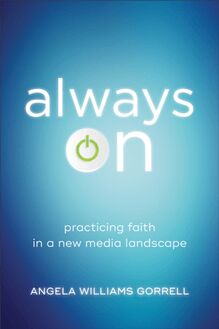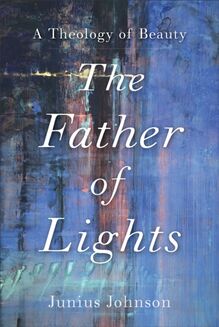For the Life of the World (Theology for the Life of the World) , livre ebook
94
pages
English
Ebooks
2019
Vous pourrez modifier la taille du texte de cet ouvrage
Obtenez un accès à la bibliothèque pour le consulter en ligne En savoir plus
Découvre YouScribe et accède à tout notre catalogue !
Découvre YouScribe et accède à tout notre catalogue !
94
pages
English
Ebooks
2019
Vous pourrez modifier la taille du texte de cet ouvrage
Obtenez un accès à la bibliothèque pour le consulter en ligne En savoir plus
Publié par
Date de parution
22 janvier 2019
Nombre de lectures
0
EAN13
9781493411245
Langue
English
Poids de l'ouvrage
3 Mo
Publié par
Date de parution
22 janvier 2019
EAN13
9781493411245
Langue
English
Poids de l'ouvrage
3 Mo
Half Title Page
Preface
Jesus Christ is God come to dwell among humans, to be, to speak, and to act “for the life of the world” (John 6:51). Taking its mandate from the character and mission of God, Christian theology’s task is to discern, articulate, and commend visions of flourishing life in light of God’s self-revelation in Jesus Christ. The Theology for the Life of the World series features texts that do just that.
Human life is diverse and multifaceted, and so will be the books in this series. Some will focus on one specific aspect of life. Others will elaborate expansive visions of human persons, social life, or the world in relation to God. All will share the conviction that theology is vital to exploring the character of true life in diverse settings and orienting us toward it. No task is greater than for each of us and all of us together to discern and pursue the flourishing of all in God’s creation. These books are meant as a contribution to that task.
Title Page
Copyright Page
© 2019 by Miroslav Volf and Matthew Croasmun
Published by Brazos Press
a division of Baker Publishing Group
PO Box 6287, Grand Rapids, MI 49516-6287
www.brazospress.com
Ebook edition created 2019
Ebook corrections 08.16.2022
All rights reserved. No part of this publication may be reproduced, stored in a retrieval system, or transmitted in any form or by any means—for example, electronic, photocopy, recording—without the prior written permission of the publisher. The only exception is brief quotations in printed reviews.
Library of Congress Cataloging-in-Publication Data is on file at the Library of Congress, Washington, DC.
ISBN 978-1-4934-1124-5
Unless otherwise noted, Scripture quotations are from the New Revised Standard Version of the Bible, copyright © 1989, by the Division of Christian Education of the National Council of the Churches of Christ in the United States of America. Used by permission. All rights reserved.
Scripture quotations labeled NIV are from the Holy Bible, New International Version®. NIV®. Copyright © 1973, 1978, 1984, 2011 by Biblica, Inc.™ Used by permission of Zondervan. All rights reserved worldwide. www.zondervan.com
Scripture quotations labeled RSV are from the Revised Standard Version of the Bible, copyright 1952 [2nd edition, 1971] by the Division of Christian Education of the National Council of the Churches of Christ in the United States of America. Used by permission. All rights reserved.
Dedication
For our daughters,
Mira Frances and Junia Ruth
Contents
Cover i
Half Title Page ii
Series Preface iii
Title Page iv
Copyright Page v
Dedication vi
Introduction: Why Theology Matters—To Us 1
1. The Human Quest 11
2. The Crisis of Theology 35
3. The Renewal of Theology 61
4. The Challenge of Universality 85
5. Lives of Theologians 115
with Justin Crisp
6. A Vision of Flourishing Life 149
Acknowledgments 187
Index 193
Back Cover 197
Introduction
Why Theology Matters—To Us
Though written in a style of an invitation, this book is a manifesto. Before we begin, we should to tell you, each in our own voice, why and how theology has come to matter to us, and then, together, we should sketch the main thesis of the book: academic theology ought to be, but today largely isn’t, about what matters the most—the true life in the presence of God. The failure of theology to attend to its purpose is a loss for the church and for the world, for theology is uniquely qualified to explore what matters the most. And this is a loss for theology itself—for theology will either refocus itself on what matters the most or gradually cease to matter at all.
Volf: I grew up in a place and at a time when we, a small group of teenagers who knew no better, thought that no intellectual endeavor could possibly matter more than doing theology. The time was the early 1970s. The place was Tito’s Yugoslavia and, for me specifically, a house in Novi Sad at the end of a dirt road—in fact, two small rooms that my father, a confectioner-turned-Pentecostal-minister, had built in its courtyard with his own hands. From its windows, through low-hanging branches of a cherry tree, I had a fine view of an electrical substation at the edge of a swamp.
A few years after I ceased to guiltily delight in the sound of the swamp’s large and unsuspecting toads exploding and then going belly up when hit by the stone from my slingshot, I started spending days and nights in one of these two makeshift rooms reading the Bible, C. S. Lewis, Plato, Bertrand Russell (yes, go figure!), and, later, Karl Barth, Rudolf Bultmann, Wolfhart Pannenberg, Simone Weil, and Joseph Ratzinger—and teaching myself English and Greek in the process. I was part of a small group of young theological enthusiasts. Except for its oldest and most zealous member, who had read the entire Bible, cover to cover, thirteen times in the first year of his faith journey, all of us were, roughly, halfway through high school.
For us, theology was about the unbreakable tie between human transcendent longing and our mundane strivings, about the power of Jesus Christ, the Word of God and the Lamb of God, which stood in irreconcilable contrast to the power of soldiers, ideologues, bureaucrats, and secret service agents; it was about the right of persons—about our right, too, of course—to determine the shape and the direction of their individual and social lives, rather than, like some wound-up tin soldiers, to simply march in unison to the drumbeat of a failing revolution. Theology was about a new world coming from God and in God’s way, a new social order whose creation and survival wouldn’t demand thousands on thousands of dead as did the order in which we were born—my own father having come a hair’s breadth from becoming one of them. In short, theology was about the truth and beauty of human existence in a world of justice, peace, and joy. For us, no endeavor could matter more than doing good theology—though for me personally getting hold of a pair of US-made Levi’s bell-bottom jeans, Italian platform shoes, and a tight-fitting Indian gauze shirt wasn’t far behind in importance.
As we spent our days and nights (yes, lots of long nights) reading and arguing about all matters theological, we had no idea that out in the wide world of Western academies, where we all wanted to study, theology was in a serious crisis.
Volf and Croasmun: Like disoriented and impoverished descendants of a monarch long deposed, some of us theologians live under a cloud of doom and futility, nostalgic for the glory and power of our ancestors but hopeless about the future. Theology had its time, but that time is no more. It would have been better, we think, had we given up long ago on the untimely endeavor and devoted our energies to more reputable academic pursuits or some more useful activity.
Others among us feel like impoverished but proud aristocrats, with fraying clothes and crumbling dwellings but a soaring sense of self-importance. We continue to do well what theologians have always done—what we feel theologians have always done—but we do so with a big chip on our shoulders. If only other academics or the general public would recognize our greatness and pay attention to the fruits of our wisdom, ancient wisdom, God’s wisdom! If only some rich heiress would fall in love with us and return the proper luster to our clothes and dwellings!
Still other theologians, perhaps the majority of us, have acquired democratic sensibilities and settled into daily routines as “knowledge producers” employed by institutions that compete in global markets. We teach our courses and write reviews, scholarly articles, and an occasional book. We work hard to accomplish what it takes to get tenure (and nervously bite our nails through the process). We have a job, and we want to do it well: to add our own grain of intellectual sand to the vast metropolis of knowledge and to instruct students about a tradition that we aren’t sure is truly alive anymore.
In one way or another, theologians seem to have lost theological eros , our sense of divine calling to grapple with the ultimate questions of human existence and of the world’s destiny.
Volf: By now I have been a student of theology for forty-five years, thirty-five of them as a teacher. In a sense, I wrote this book to give myself a reason to keep faith with the dream of the teenager-theologian I once was. But my concern isn’t primarily autobiographical integrity; after all, platform shoes or their current equivalents don’t matter to me nearly as much now as they did then. My concern is the self-marginalizing and self-defeating response of theologians to the obsession with acquisition of resources and entertainment in the broader culture and especially to the dominance of the sciences in modern universities. Along with other scholars in the humanities, we theologians have sought to recast our discipline so as to acquire a legitimate home in the great edifice of science, but instead we have “dug a hole and pitched [ourselves] to its bottom.” 1 The price we paid for the right to make at best marginal additions to the storehouse of knowledge was the loss of the ability to address the most profound and important questions of human existence, which the sciences, by the very nature of their methodologies, are unable even to take up, let alone to answer. I became a student of theology in search of true life in the midst of a false one; I am a theologian now for that same reason. This book explains why and invites others to join the endeavor.
Croasmun: The most theological thing I have ever done was to plant a church—a community in which Bible scholars, ethicists, philosophers, and, yes, a stray “theologian” proper, have done theology as we have lived theologically. A community in which graphic designers, poets, musicians, sociologists, and even lawyers and medical doctors have become “accidental theologians.” It began almost imperceptibly and quite




